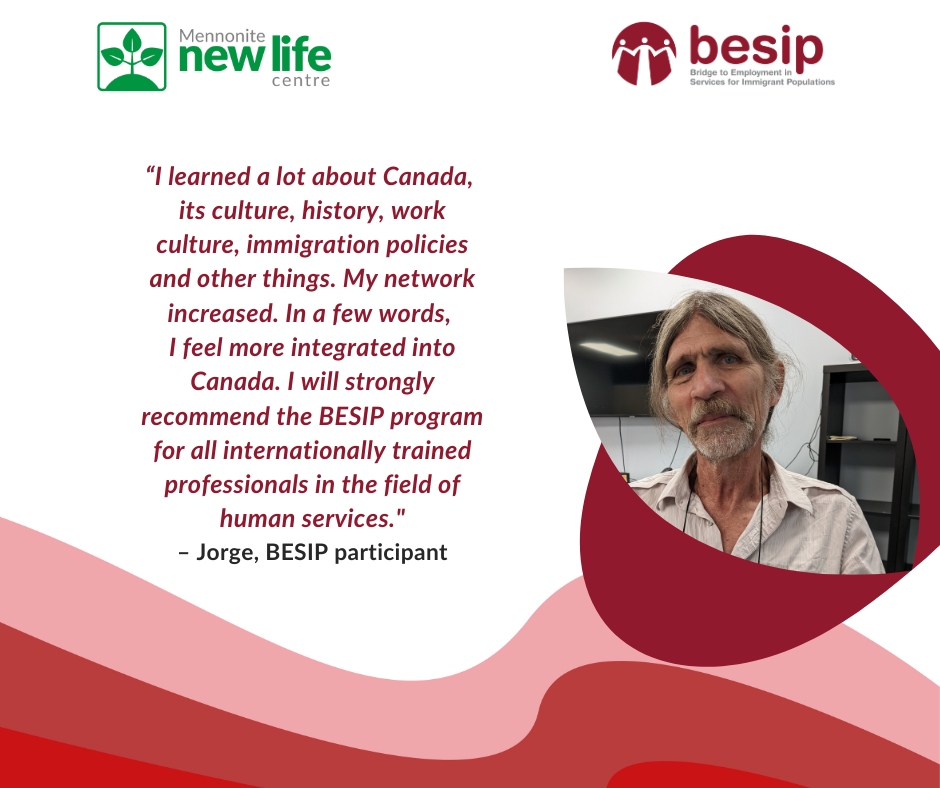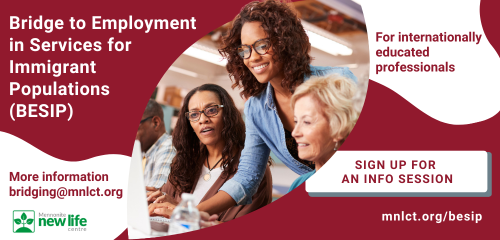Are you an Internationally Educated Professional (IEP) trying to get into the immigrant populations’ services field? The Bridge to Employment in Services for Immigrant Populations (BESIP) Program is your best option.
The BESIP Program is the ideal place to start if you want to work in the field of services for immigrant populations or advance in your existing position. You’ll be well-equipped to accomplish your professional objectives and have a significant effect on your community thanks to its extensive training and career preparation services.
Why then wait? Learn more about the BESIP Program right now if you’re an IEP considering a career in services for immigrant populations and taking the first step toward a bright and exciting future.
FAQ about BESIP
What is the mission of the Bridge to Employment in Services for Immigrant Populations (BESIP) program?
The BESIP program’s purpose is to equip internationally educated professionals (IEPs) with entry-level positions in high-demand disciplines such as settlement counseling, employment counseling, service navigation, program coordination, and others, with an emphasis on career growth prospects.
What is the BESIP Program and how will it address the demand for culturally competent professionals in the human services sector?
The Bridge to Employment in Services for Immigrant Populations (BESIP) Program aims to provide entry to high-demand jobs for internationally educated professionals and help address the increasing demand for culturally competent professionals in the human services sector due to the projected increase in diversity indicators such as a newcomer’s birthplace, visible minority status, and religion in Canada.
What is the average salary for social workers in Toronto?
In Canada, the average annual compensation for a social worker is $63,701. According to 4.6k incomes recorded on the Indeed website on May 24, 2023.
Who is eligible for the BESIP bridge program?
To qualify for the MNLCT BESIP bridging programs:
- Post-secondary education abroad
- Experience working two years outside of Canada
- Language skills (CLB 7)
- Desire to engage with disadvantaged people or immigrants.
- Legal immigration status (Canadian citizen by birth, permanent resident, refugee under the Convention, and refugee claiming a work permit, CUAET)
- Residence: Ontario
How can I find out more about the BESIP program’s bridging program?
You may get the most recent information on this bridge program through MNLCT’s information sessions, flyers, and the program’s official website.
To stay updated on this and other MNLCT services, we also welcome you to sign up for our newsletters or write to us at bridging@mnlct.org.
What other bridging programs does MNLCT offer?
The following online programs are offered by MNCLT, and you can participate from any Ontario city:










